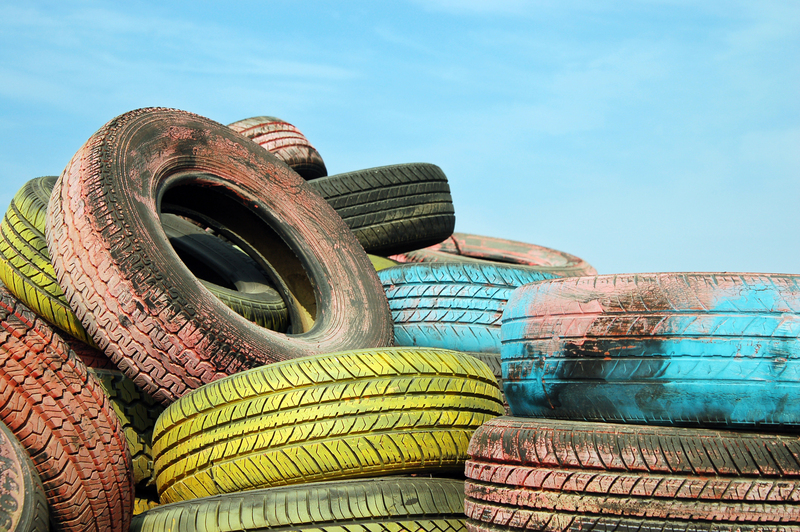Cost-Effective Bulky Waste Solutions for Every Household
Dealing with bulky household waste can be a real challenge for families and individuals. Whether it's old furniture, broken appliances, mattresses, or large volumes of garden debris, disposing of these items responsibly and affordably requires knowledge and careful planning. In this comprehensive guide, we'll explore the most cost-effective bulky waste solutions for households of all sizes, with actionable tips for efficient waste management, environmental responsibility, and saving money.
Understanding Bulky Waste
Bulky waste refers to large items that are too big for regular household trash bins or standard curbside collection services. These typically include:
- Old furniture (sofas, beds, desks, wardrobes)
- Household appliances (fridges, washing machines, ovens)
- Mattresses and box springs
- Carpets and rugs
- Garden waste (branches, large plant pots, lawn furniture)
- Renovation and construction debris
- Large electronics (televisions, monitors)
Understanding what counts as bulky waste is crucial for choosing the right cost-effective disposal solutions for your household.

Why Choose Cost-Effective Bulky Waste Solutions?
The disposal of large waste items can be expensive if not handled properly. Many local councils charge hefty fees for bulky waste pickups, and landfill costs continue to rise. In addition, improper disposal can contribute to environmental problems.
Choosing affordable bulky waste solutions offers several benefits:
- Save Money: Avoid paying unnecessary fees or fines.
- Save Time: Manage waste efficiently without multiple trips to the dump.
- Protect the Environment: Prioritize recycling or reuse to reduce landfill impact.
- Stay Compliant: Prevent legal issues by following local waste disposal regulations.
Popular Bulky Waste Disposal Options
Bulky Waste Collection Services
Most local councils or private waste companies offer regulated bulky waste collection services. While convenient, these can be expensive, especially for large volumes or frequent needs.
- Pros: Hassle-free, no transportation needed.
- Cons: Fees can be high, service may be infrequent.
- Cost-Effective Tip: Combine disposals with neighbors or time your pickups with local free bulk collection events.
Skip Hire or Dumpster Rental
Hiring a skip or mini-dumpster is an excellent solution for large home cleanouts or renovation projects. Sizes vary according to your specific needs.
- Pros: One-time fee for high volume waste, convenience.
- Cons: Upfront cost, you must load the skip yourself.
- Cost-Effective Tip: Share the skip cost with neighbors for simultaneous cleanouts.
Recycling Centers and Household Waste Sites
Most towns have municipal recycling centers or household waste disposal sites that accept a range of bulky waste types, often free or for a minimal fee.
- Pros: Environmentally friendly, often low-cost or free.
- Cons: Transportation required, limited operating hours.
- Cost-Effective Tip: Wait until you have a full load to maximize each trip.
Donation and Reuse Opportunities
Many bulky waste items can be reused, refurbished, or donated to local charities, thrift shops, or shelters. Gently used furniture and appliances, in particular, are often in demand.
- Pros: Items are diverted from landfill, may be picked up for free.
- Cons: Items must be in usable condition.
- Cost-Effective Tip: Join local online communities or "freecycle" groups to find takers for usable goods.
Private Junk Removal Services
Junk removal companies offer on-demand removal of almost all types of household bulky waste--often including labor to remove items from your home or garden.
- Pros: Fast, hassle-free, no physical effort required.
- Cons: Typically more expensive than other methods.
- Cost-Effective Tip: Get quotes from several providers and read reviews to avoid inflated prices or hidden fees.
Eco-Friendly, Low-Cost Bulky Waste Solutions
Upcycling and Repurposing
Before considering disposal, look for ways to upcycle or repurpose old items. For example, an old ladder can become a bookshelf, or pallets can be used for garden projects. Numerous online resources exist for creative upcycling ideas--helping you save money and reduce waste simultaneously.
Freecycle and Community Sharing
Check local community sharing groups or online platforms like Freecycle, Facebook Marketplace, and Nextdoor. List items as "free for collection"--you'll often find someone happy to take bulky goods off your hands, saving you time and cost.
Organize a Neighborhood Collection Day
Some neighborhoods organize annual or semi-annual "big item" drop-off events that coincide with city clean-up days. By pooling resources and efforts, you can secure group discounts or even free removal services.
How to Minimize Bulky Waste Volume
The most affordable bulky waste solution is to reduce the amount you generate. Here are some strategies:
- Buy Smart: Opt for quality, durable goods that last longer and avoid frequent replacements.
- Repair & Maintain: Fix minor issues with furniture or appliances instead of discarding them.
- Modular Furniture: Choose items that are easy to disassemble, repair, or upgrade.
- Plan Purchases: Only buy when necessary and avoid trends that lead to quick turnover.
- Opt for Multi-Purpose Items: Reduce overall clutter through items that serve several functions.
Understanding Local Regulations and Permits
Many areas have strict rules about what can and cannot be put out for collection or brought to municipal waste centers. Fines or refused collections are common if you don't comply. Always:
- Check Council Guidelines: Review local government websites for specific bulky waste schedules and policies.
- Book Collections Early: Most municipalities require advance booking for bulky item pickups.
- Obtain Permits If Needed: For skip hires or large-scale disposals, secure necessary permits to avoid legal issues.
- Clarify What Is Accepted: Not all items are accepted everywhere--especially hazardous materials or electronics.
Cost Breakdown: Comparing Bulky Waste Disposal Methods
| Solution | Typical Cost | Best For |
|---|---|---|
| Council Collection | ?10-?60 per item or load (varies) | Single items or occasional needs |
| Skip Hire | ?100-?250 per skip | Large amounts of waste; renovations |
| Recycling Centre Drop-off | Usually Free - low cost for some items | Residents with own transport |
| Private Junk Removal | ?60-?150+ per load | Quick, hassle-free, whole house clear-outs |
| Donation/Community Reuse | Free | Usable items in fair condition |
Tips for Reducing Costs on Bulky Waste Disposal
- Consolidate Loads: Group multiple bulky items together for a single collection, reducing per-item fees.
- Plan Ahead: Organize disposal in advance to take advantage of free or discounted events.
- Negotiate Rates: Many private companies are open to negotiation, especially for large loads. Always ask for discounts.
- Research Local Charities: Many organizations will collect reusable goods at no cost--sometimes even providing tax-deductible receipts.
- Disassemble Items: The smaller you can make your waste, the easier and cheaper it is to transport or dispose of.
Case Studies: Real-World Cost-Effective Bulky Waste Solutions
Case Study 1: Family Home Renovation
The Smith family recently renovated their home, producing a considerable amount of bulky waste, including old carpets, cabinets, and furniture. By hiring a 6-yard skip and sharing it with their next-door neighbors, they split the cost and saved over ?100 compared to booking two separate skips or collections.
Case Study 2: Downsizing Seniors
Mary and John decided to downsize and donate much of their gently used furniture. Working with a local reuse charity, their items were collected free of charge, and they saved an estimated ?75 in potential disposal fees. The items found a second life in community housing projects.
Case Study 3: Moving to a New Home
Before moving, a young couple advertised old appliances and a mattress on Freecycle. Not only did they clear space, but the takers also handled all lifting and transportation, which eliminated any collection fees or heavy lifting costs.

How to Choose the Best Bulky Waste Solution for Your Household
The ideal bulky waste solution for every household depends on:
- The quantity and type of waste
- Your budget and available time
- Access to transportation
- Your commitment to sustainability
- Local rules and collection policies
In most cases, a combination of reuse, donation, recycling, and efficient scheduling will offer the optimal balance of affordability and eco-friendliness.
Conclusion: Make Bulky Waste Disposal Easy and Affordable
Dealing with large, unwanted items doesn't have to break the bank or harm the environment. By following the tips and solutions above, you can identify cost-effective bulky waste disposal methods that fit your household's needs and contribute to a cleaner, greener community. Always prioritize reuse, responsible recycling, and community engagement before opting for paid removal services.
Ready to clear out your clutter? Start with the most cost-effective solution, and you'll save both money and time--while making a positive impact on the planet. For specific local guidance, consult your council's bulky waste policy or trusted local charities, and be proactive about scheduling and preparation. With a little effort, handling bulky waste can be an easy, affordable, and sustainable part of home care.